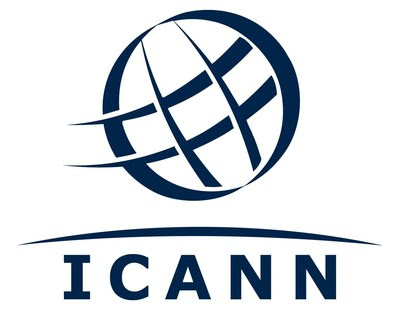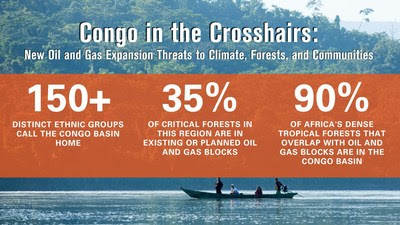Cerimônia em Las Vegas Homenageou Empresas de Mulheres e Profissionais Mulheres
FAIRFAX, Va., Nov. 15, 2022 (GLOBE NEWSWIRE) — Chamando a atenção para as mulheres executivas, empreendedoras e organizações administradas por mulheres, as vencedoras do Stevie® Awards for Women in Business de 2022 foram anunciadas na sexta-feira, 11 de novembro.
O Stevie Awards para Mulheres Empresariais é uma competição internacional produzida pelos criadores dos prestigiados International Business Awards® e American Business Awards®. O Stevie é amplamente considerado a principal premiação empresarial do mundo.
Com as mulheres nomeadas e seus convidados presentes, os prêmios foram anunciados durante um evento de gala no Caesars Palace, em Las Vegas, Nevada. A competição de 2022 atraiu indicações de 27 nações.
A apresentação foi transmitida ao vivo via Livestream.
Mais de 1.500 indicações de pessoas físicas e jurídicas de todo o mundo para os prêmios este ano foram enviadas para consideração em categorias como Empreendedora do Ano, Executiva do Ano, Empresa Mais Inovadora do Ano e Startup do Ano, entre outras. Mais de 200 profissionais que trabalham em sete comissões julgadoras especializadas escolheram as vencedoras do Stevie Award Ouro, Prata e Bronze.
Os troféus Grand Stevie Award foram entregues a cinco organizações que apresentaram o melhor corpo de inscrições para a competição, em seus próprios nomes ou em nome de um ou mais clientes. Os vencedores foram escolhidos de acordo com o número de Stevie Awards Ouro, Prata e Bronze ganhos na competição. Os vencedores do Grand Stevie Award são:
- The Audacious Agency, Coombabah, QLD, Austrália (#1)
- IBM, Armonk, NY, EUA (#2)
- Megafone, Melbourne, Austrália (#3)
- Melissa Sones Consulting, Nova York, NY EUA (#4)
- Global Press Institute, Washington D.C., EUA (#5)
As vencedoras do Stevie Award Ouro, Prata e Bronze de 2022 refletem um grupo diversificado de grandes e pequenas organizações de todo o mundo. As vencedoras notáveis do Prêmio Stevie Ouro na competição deste ano são:
- Sandrine Pons, Vice-Presidente Regional, Chefe de Vendas e Inovação de Soluções, SAP, Paris, França, em Mulheres que Ajudam Mulheres – Negócios
- Ann Kaplan, Las Vegas, NV EUA, em Mulher do Ano – Contabilidade e Finanças
- Susan McLaughlin, Gerente Sênior de Mídia Inovadora e Operações Criativas, Vanguard, Malvern, PA EUA, em Mulher do Ano – Publicidade, Marketing e Relações Públicas
- Fatima Sultan Al-Kuwari, Diretora de Recursos Humanos do Grupo, Ooredoo, Qatar, em Executiva do Ano – Produtos de Negócios – Mais de 2.500 Funcionários
- Shama Hyder, CEO e Fundadora, Zen Media, Plano, TX U.S.A., em Mulher Mais Inovadora do Ano – Rede Social
- Stephanie Wernick Barker, Presidente, Mondo, Nova York, NY EUA, em Líder de Pensamento Feminino do Ano – Serviços Empresariais
- Gehad Hamdy, Fundadora, Speak Up, Giza, Egito, em Transformadora Social do Ano – Gênero
- Michelle John, Diretora Fundadora, PEGS, Shrewsbury, Shropshire, Reino Unido, em Mulher do Ano – Governo ou Sem Fins Lucrativos
- Kelley Higney, Fundadora e CEO da Bug Bite Thing, Port Lucie, FL EUA, em Melhor Empreendedora – Produtos de Consumo –11 a 2.500 Funcionários
- Allison Grafton, Presidente e Fundadora, Rockwood Custom Homes, Calgary, Alberta, Canadá, em Melhor Empreendedora do Canadá
As organizações que ganharam mais de um Stevie Award Ouro são Anheuser-Busch InBev, Babylist, Brandless, But Bite Thing, Caroline Kennedy Group, Everise, Flock DC, Global Press Institute, Halkbank, Harman International, LickYourPhone Media, Luma Brighter Learning, Megaphone, Primrose Schools, Rockwood Custom Homes, Rubi Laboratories, Sidus Space e The Tambellini Group.
A HCLTech, empresa global de tecnologia que oferece recursos líderes do setor centrados em digital, engenharia e nuvem, impulsionada por um amplo portfólio de serviços e produtos de tecnologia, patrocinou prêmios em quatro categorias chamadas Prêmios de Mulheres em Tecnologia da HCLTech. Entre os vencedores notáveis do Stevie nessas categorias estão:
- Monica Williams, Vice-Presidente Sênior – Produtos Digitais e Distribuição de Conteúdo, NBCUniversal, em Transformadora Digital de Novo Normal
- Karen Oerter, Diretora de Tecnologia da Informação, Land O’Lakes, em Transformadora Digital de Novo Normal
- Abby Knowles, Vice-Presidente de Soluções Globais de Tecnologia, Verizon, em Liderança Durante Incertezas
- Susan Doniz, CIO e SVP de Tecnologia da Informação e Análise de Dados, The Boeing Company, em Liderança Durante Incertezas
- Tia Ballard, Diretora de Nuvem e Automação, Sempra, em Liderança em Tecnologia da Próxima Geração
- Constance Metcalfe, Vice-Presidente Associada – Transformação de Infraestrutura Empresarial, Canadian Tire Corporation, em Excelência na Transformação de Negócios
Para uma lista completa das vencedoras do Stevie Award e mais informação, visite http://www.StevieAwards.com/
O Stevie Awards apresentou a quinta edição do seu Mulheres| Conferência do Futuro virtual em 8-10 de novembro, em conjunto com o Stevie Awards para Mulheres Empresariais. Mais de 250 mulheres compartilharam três dias de programação destacados por uma apresentação principal de Rashmi Verma, dirigente de D&I da Hugo Boss.
As inscrições para a edição de 2023 (20ª) dos prêmios serão abertas em maio. A cerimônia de premiação de 2023 será realizada no Marriott Marquis em Nova York, NY EUA, em novembro.
Sobre o Stevie Awards
Os Stevie Awards são concedidos em sete programas: Stevie Awards Ásia-Pacífico, Stevie Awards Alemão, The American Business Awards®, The International Business Awards®, Stevie Awards para Mulheres Empresariais, Stevie Awards para Grande Empregadores , e Stevie Awards para Vendas e Serviço ao Cliente. Os concursos Stevie Awards recebem mais de 12.000 nomeações todos os anos de empresas de mais de 70 países. Honrando empresas de todos os tipos e tamanhos, e as pessoas por trás delas, os Stevies reconhecem excelente desempenho no local de trabalho em todo o mundo. Saiba mais sobre os Stevie Awards em http://www.StevieAwards.com
Contato:
Maggie Miller
Maggie@StevieAwards.com
+1 (703) 547-8389
Foto deste comunicado disponível em https://www.globenewswire.

GlobeNewswire Distribution ID 8697329





